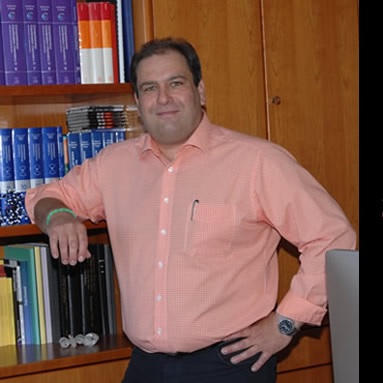Chair
Prof. Dr. Karsten Meyer
General Scientific Interests
The inorganic chemistry in the Meyer laboratory bridges the field of classical coordination chemistry with fields of supramolecular, organometallic and bioinorganic chemistry. The general research focuses on the organic synthesis of new custom-tailored ligand architectures and their transition and actinide metal coordination complexes. These complexes often exhibit unprecedented coordination modes and unusual electronic structures and, consequently, enhanced reactivities towards small molecules, such as H2O, O2, O3, CO, CO2, NO, N2O or (in-)organic azides. Small molecule activation and atom or group transformation to functionalize important organic precursor molecules is envisioned. The coordination chemistry of a range of early transition metals as well as the relatively unexplored uranium chemistry is investigated. Transition-metal-based catalysts in pre-organized materials, such as task-specific ionic liquids (ILs) and ionic liquid crystals (ILCs), play an important role in our research. Recently, the development of platforms to facilitate charge and light-driven catalytic processes relevant to sustainable energy cycles has been explored.
A battery of spectroscopic and magneto-chemical methods, such as EPR and Mössbauer spectroscopy as well as SQUID magnetometry and single-crystal X-ray diffractometry, is applied to study the molecular and electronic properties of our compounds. Synthetic and physical inorganic chemistry is at the heart of our research but modern computational methods (geometry optimization, reaction profile and electronic structure calculations) are applied to elucidate the electronic structures and origin of reactivity of our newly synthesized molecules.
In general, the research in our laboratories is collaborative and team-oriented and allows for learning a variety of inorganic and organic synthetic techniques as well as the theory and application of a large number of spectroscopic and computational methods. Ultimate long-term objectives of our research are the development of efficient catalysts for the metal-assisted conversion of abundant natural substrate resources and the discovery of renewable energy sources.

